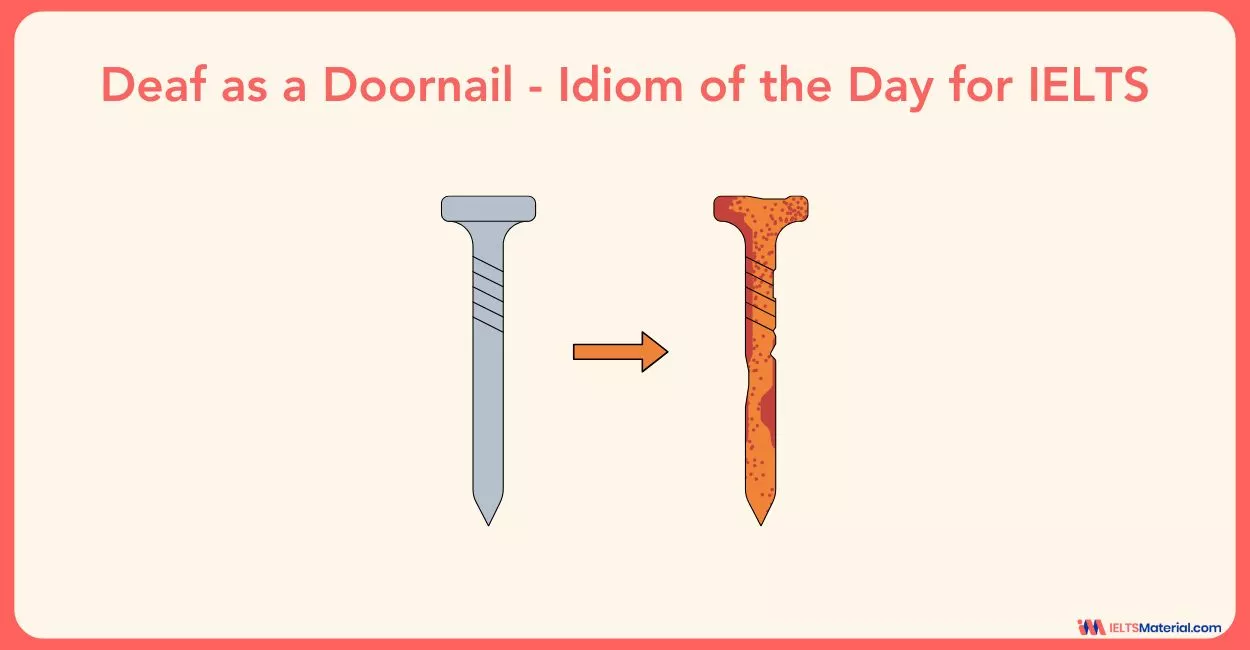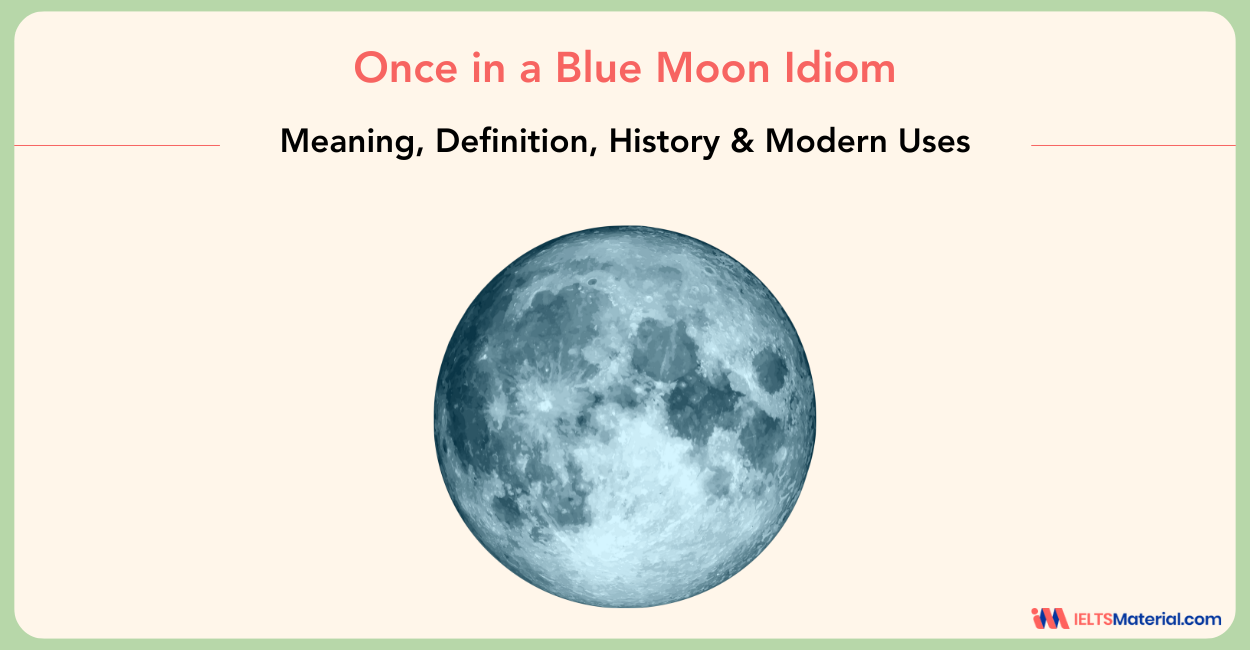Pot Calling the Kettle Black - Idiom of the Day for IELTS Speaking & Writing
5 min read
Updated On
-
Copy link
Discover the meaning of the idiom, ‘Pot Calling the Kettle Black’, to describe ironic or hypocritical situations. Dive into the strategies to use it in sentences for IELTS Speaking & Writing and attempt exercises to familiarise yourself.
Table of Contents

Limited-Time Offer : Access a FREE 10-Day IELTS Study Plan!
The idiom, 'Pot calling the kettle black', is a common phrase which is used to communicate in English. Understanding the idiom can deepen your grasp of the English language in the Lexical Resource criterion. While preparing for the IELTS Speaking and Writing sections, using idiomatic expressions like this will set you apart.
Idiomatic expressions, when incorporated into your answers ,would create additional depth to your answer. This will demonstrate a higher level of proficiency, which will help score a band 8+ in the IELTS Exam.
Connect with our IELTS Trainers to crack your IELTS exam in no time! FREE Demo.
What is the Meaning of the Idiom ‘Pot Calling the Kettle Black’?
In your preparation for the idioms for IELTS Vocabulary, understanding both the literal and context-based meanings is key. Applying a consistent practice routine will help you understand the accurate application. When paired with appropriate techniques, achieving confidence can be achieved with ease.
Let’s look at the table below, which showcases the important factors which will help you understand the idiom better.
|
Topic |
Description |
|
Pot Calling the Kettle Black |
Idiom |
|
Definition |
A person criticizing someone else for a fault they have themselves. It's used to point out hypocrisy, especially when someone doesn't recognize their flaws while readily pointing out similar flaws in others. |
|
Synonyms |
Hypocritical, Double standards, Self-righteous, Two-faced, Ironical |
|
Example |
“She accused her roommate of being messy, but her own room was a disaster. Talk about the pot calling the kettle black!”
“When the CEO criticized employees for being late, despite his own frequent tardiness, it was a clear case of the pot calling the kettle black.” |
Grab the Vocabulary for IELTS (Essential words for popular topics in IELTS) and take a step towards your desired band score of 8+.
How to Use Pot Calling the Kettle Black in IELTS Speaking & Writing?
By familiarizing yourself with the idiom, you can help in achieving the desired IELTS Band Score for the IELTS Speaking and Writing sections. Using idioms should not be the only focus; a mechanical tone can hinder the ease and depth intended. The following strategies can be applied so that you get familiar with the term effectively.
- Always consider how every idiom fits into different sentences because every context will shape its meaning in unique ways.
- Try not to use the same idiom repeatedly. Doing so will make your speech sound fluent and your writing answers structured. Strike a balance so you do not end up sounding idiomatic and redundant.
- In IELTS Writing, make an effort to incorporate the idioms into sentences naturally and examine how well they serve your point. The idiom shouldn’t divert attention from your argument but add importance to the idea.
- As you prepare for the speaking section, record yourself using idioms and scrutinize any areas you may have issues with. This method will help you become aware of the pattern, such as the frequency of misuse of idioms in your answers. With this, you will get to know the precise areas you might have to improve on.
- The logical framework of the answer must remain coherent. Remember that an idiom, if used inappropriately or out of context, can break the flow of your answer, which will in turn affect your band score. This is why you should make it a point to have controlled idioms practice with IELTS Grammar topics for seamless flow.
- A flashcard can help you remember an idiom as well as its meaning and context of usage.
Check out the video to learn the top IELTS Speaking Idioms for Band 9.
Exercises for the Idiom ‘Pot Calling the Kettle Black’
EXERCISE 1: Complete the following sentences by filling in the blanks with the appropriate idiom given in the table below.
|
height of hypocrisy |
people in glass houses shouldn’t throw stones |
the pot calling the kettle black |
double standards |
not walking the talk |
1 Susan criticized her friend’s spending habits, but she’s always buying things she doesn’t need herself. It’s like __________.
2 The manager reprimanded the employee for being late, even though he himself arrives after everyone else. It’s a clear case of the __________.
3 Jake told his sister she talks too much, but he’s the one who never stops talking. It’s definitely a situation of __________.
4 The teacher scolded the students for not paying attention, but she often daydreams during class. It’s the __________.
5 Sarah accused her coworker of being unhelpful, yet she’s the first one to avoid assisting others. It’s a classic example of the __________.
EXERCISE 2: Attempt the speaking cue card topic and try to use this idiom in your speech.
Describe a time when someone criticized another person unfairly.
You should say:
- Who was involved
- What the situation was
- What was said or done
- Explain how you felt about it.
Answer to the Exercise for the Idiom ‘Pot Calling the Kettle Black’
- the pot calling the kettle black
- double standards
- people in glass houses shouldn’t throw stones
- not walking the talk
- height of hypocrisy
Enroll into our Free IELTS Webinar and learn more about techniques to improve your vocabulary.
As you prepare for the IELTS exam, don’t underestimate the power of idioms in showcasing your language skills and making a lasting impression on the examiners. By getting familiar with such idiomatic expressions like this one, ‘Pot Calling the Kettle Black’, you will elevate your preparation. However, remember to use it correctly to acquire a band score of 8+ in the IELTS Speaking & Writing sections.
Explore More:
Also Check:
Explore IELTS Resources

Start Preparing for IELTS: Get Your 10-Day Study Plan Today!
Explore other IELTS Articles

Haniya Yashfeen

Kasturika Samanta
Recent Articles

Kasturika Samanta

Prity Mallick

Nehasri Ravishenbagam







Post your Comments